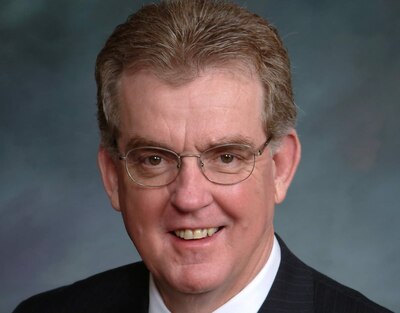Lt. Gov. Barbara O’Brien Wednesday continued to sound cautious about Colorado’s chances in the Race to the Top, telling legislators the state may have a better chance in the second round of competition for a share of $4 billion in federal stimulus dollars.
Colorado Tuesday filed its first-round application, asking for $377 million. (See detailed story.)
“I’ve been trying to manage expectations a bit about phase 1 because they may select only two or three states, and there are states that are ahead of Colorado,” O’Brien told members of the House and Senate education committees and other lawmakers during an early-morning meeting Wednesday.
“There are states that are ahead of just because of their ability to invest … [but] we continue to be optimistic about chances” in the second round, O’Brien said.
When they unveiled the plan on Tuesday, O’Brien, Gov. Bill Ritter and education Commissioner Dwight Jones all were careful to note that the competition is stiff and that Colorado might not win a grant but still had created a good blueprint for future education reform with its R2T plan.
“It’s not perfect, but we think it’s a really solid plan for Colorado. … It’s a really good plan for Colorado no matter what,” O’Brien said Wednesday.
Jones also spoke to legislators Wednesday, and he defended the Ritter administration’s decision to put development of a new educator evaluation system in the hands of an appointed commission that won’t report back to the legislature until September 2011.
“I know we continue to get criticism in this area, and frankly I don’t agree with the criticism,” Jones said. He said the commission process is “an opportunity to get to a place we all want to get to.”
Many state R2T applications seem to fall into one of two models – collaborative or top-down – and in the last two days Colorado officials have clearly said they chose the collaborative model because they believe it will make reform more achievable. (For more background on the issue, see this EdNews analysis.)
“We have taken a collaborative approach; the governor demanded it,” Jones said. “Hopefully the folks who are scoring our application will take note.”
Jones added later, “’Some may not think it is bold enough, but I think we will be one of the few states that will get it done.”
The Colorado plan proposes to significantly increase math and reading proficiency among Colorado students by 2014 and to trim achievement gaps, which now are about 30 percent, to 10 percent, Jones noted.
Several legislators used the meeting to raise concerns about favorite issues.

Sen. Evie Hudak, D-Westminster, lamented that the state’s application doesn’t say enough about the role of parents. “I would encourage you to think a little more broadly about parent involvement,” she told Jones.
Rep. Mike Merrifield, D-Colorado Springs and chair of House Education, agreed with that and also complained that the R2T program doesn’t place enough emphasis on “a well-rounded curriculum” or the arts. (Merrifield is a retired music teacher.)
Rep. Judy Solano, D-Brighton and House Ed vice chair, in turn agreed with Merrifield and also was concerned that R2T doesn’t seem to place much emphasis on the importance of early childhood education.
O’Brien said the federal government is expected to roll out a separate early childhood grant program in the spring, and “We are going to be applying for that.”

Sen. Keith King, R-Colorado Springs and a charter school administrator, asked what the department was doing to ensure charters get a fair shot at R2T money. The program will split grants equally between the state and local school districts. King said his heard complaints that some charters have been shut out of Title I grants, a separate part of the American Recovery and Reinvestment Act.
Jones said, “I’m not sure I would say charter schools have been excluded” and that “the department does have an obligation to intervene” if that’s the case.
O’Brien and Jones explained that if Colorado passes an initial review, state officials will be invited to Washington in March to make the case for their bid.
That caught the attention of Sen. Michael Johnston, D-Denver, who asked, “So that’s an appropriate place to report on progress we’ve made since Jan. 19?”
Johnston’s planned teacher evaluation and tenure bill has been somewhat sidelined by Ritter’s commission plan, and the senator is now considering what kind of legislation to introduce instead.
Do your homework
